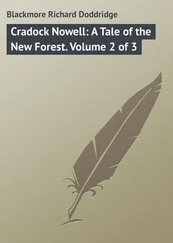Richard Blackmore - The Maid of Sker
Здесь есть возможность читать онлайн «Richard Blackmore - The Maid of Sker» — ознакомительный отрывок электронной книги совершенно бесплатно, а после прочтения отрывка купить полную версию. В некоторых случаях можно слушать аудио, скачать через торрент в формате fb2 и присутствует краткое содержание. Жанр: foreign_prose, на английском языке. Описание произведения, (предисловие) а так же отзывы посетителей доступны на портале библиотеки ЛибКат.
- Название:The Maid of Sker
- Автор:
- Жанр:
- Год:неизвестен
- ISBN:нет данных
- Рейтинг книги:3 / 5. Голосов: 1
-
Избранное:Добавить в избранное
- Отзывы:
-
Ваша оценка:
- 60
- 1
- 2
- 3
- 4
- 5
The Maid of Sker: краткое содержание, описание и аннотация
Предлагаем к чтению аннотацию, описание, краткое содержание или предисловие (зависит от того, что написал сам автор книги «The Maid of Sker»). Если вы не нашли необходимую информацию о книге — напишите в комментариях, мы постараемся отыскать её.
The Maid of Sker — читать онлайн ознакомительный отрывок
Ниже представлен текст книги, разбитый по страницам. Система сохранения места последней прочитанной страницы, позволяет с удобством читать онлайн бесплатно книгу «The Maid of Sker», без необходимости каждый раз заново искать на чём Вы остановились. Поставьте закладку, и сможете в любой момент перейти на страницу, на которой закончили чтение.
Интервал:
Закладка:
CHAPTER VIII.
CHILDREN WILL BE CHILDREN
The "boys of Sker," as we always called those rough fellows over at Newton, were rabbiting in the warren; according to their usual practice, on a Sunday afternoon. A loose unseemly lot of lads, from fifteen up to two-and-twenty years of age, perhaps, and very little to choose between them as to work and character. All, however, were known to be first-rate hands at any kind of sporting, or of poaching, or of any roving pleasure.
Watkin, the sixth and youngest boy, was of a different nature. His brothers always cast him off, and treated him with a high contempt, yet never could despise him. In their rough way, they could hardly help a sulky sort of love for him.
The seventh and last child had been a girl – a sweet little creature as could be seen, and taking after Watkin. But she had something on her throat from six months up to six years old; and when she died, some three months back, people who had been in the house said that her mother would sooner have lost all the boys put together, if you left Watkin out of them. How that was I cannot say, and prefer to avoid those subjects. But I know that poor black Evan swore no oath worth speaking of for one great market and two small ones, but seemed brought down to sit by himself, drinking quietly all day long.
When we came to the ancient hall (or kitchen, as now they called it), for a moment I was vexed – expecting more of a rush, perhaps, than I was entitled to. Knowing how much that young child owed me for her preservation, and feeling how fond I was of her, what did I look for but wild delight at seeing "old Davy" back again? However, it seems, she had taken up with another and forgotten me.
Watkin, the youngest boy of Sker, was an innocent good little fellow, about twelve years old at that time. Bardie had found this out already; as quickly as she found out my goodness, even by the moonlight. She had taken the lead upon Watkin, and was laying down the law to him, upon a question of deep importance, about the manner of dancing. I could dance a hornpipe with anybody, and forward I came to listen.
"No, no, no! I tell 'a. 'E mustn't do like that, Yatkin. 'E must go yound and yound like this; and 'e must hold 'a cothes out, same as I does. Gardy là! 'E must hold 'a cothes out all the time, 'e must."
The little atom, all the time she delivered these injunctions, was holding out her tiny frock in the daintiest manner, and tripping sideways here and there, and turning round quite upon tiptoe, with her childish figure poised, and her chin thrown forward; and then she would give a good hard jump, but all to the tune of the brass jew's-harp which the boy was playing for his very life. And all the while she was doing this, the amount of energy and expression in her face was wonderful. You would have thought there was nothing else in all the world that required doing with such zeal and abandonment. Presently the boy stopped for a moment, and she came and took the knee of his trousers, and put it to her pretty lips with the most ardent gratitude.
"She must be a foreigner," said I to myself: "no British child could dance like that, and talk so; and no British child ever shows gratitude."
As they had not espied us yet, where we stood in the passage-corner, I drew Bunny backward, and found her all of a tremble with eagerness to go and help.
"More pay," said little missy, with a coaxing look; "more pay, Yatkin!"
"No, no. You must say 'more play, please, Watkin.'"
"See voo pay, Yatkin; I 'ants – more pay!" The funny thing laughed at herself while saying it, as if with some comic inner sense of her own insatiability in the matter of play.
"But how do you expect me to play the music," asked Watkin, very reasonably, "if I am to hold my clothes out all the time?"
"Can't 'a?" she replied, looking up at him with the deepest disappointment; "can't 'a pay and dance too, Yatkin? I thought 'a could do anything. I 'ants to go to my dear mama and papa and ickle bother."
Here she began to set up a very lamentable cry, and Watkin in vain tried to comfort her, till, hearing us, she broke from him.
"Nare's my dear mama, nare's my dear mama coming!" she exclaimed, as she trotted full speed to the door. "Mama! mama! here I is. And 'e mustn't scold poor Susan."
It is out of my power to describe how her little flushed countenance fell when she saw only me and Bunny. She drew back suddenly, with the brightness fading out of her eager eyes, and the tears that were in them began to roll, and her bits of hands went up to her forehead, as if she had lost herself, and the corners of her mouth came down; and then with a sob she turned away, and with quivering shoulders hid herself. I scarcely knew what to do for the best; but our Bunny was very good to her, even better than could have been hoped, although she came of a kindly race. Without standing upon ceremony, as many children would have done, up she ran to the motherless stranger, and, kneeling down on the floor, contrived to make her turn and look at her. Then Bunny pulled out her new handkerchief, of which she was proud, I can tell you, being the first she had ever owned, made from the soundest corner of mother Jones's old window-blind, and only allowed with a Sunday frock; and although she had too much respect for this to wet it with anything herself, she never for a moment grudged to wipe poor Bardie's eyes with it. Nay, she even permitted her – which was much more for a child to do – to take it into her own two hands and rub away at her eyes with it.
Gradually she coaxed her out of the cupboard of her refuge, and sitting in some posture known to none but women children, without a stool to help her, she got the little one on her lap, and stroked at her, and murmured to her, as if she had found a favourite doll in the depth of trouble. Upon the whole, I was so pleased that I vowed to myself I would give my Bunny the very brightest halfpenny I should earn upon the morrow.
Meanwhile, the baby of higher birth – as a glance was enough to show her – began to relax and come down a little, both from her dignity and her woe. She looked at Bunny with a gleam of humour, to which her wet eyes gave effect.
"'E call that a ponkey-hankerchy? Does 'a call that a ponkey-hankerchy?"
Bunny was so overpowered by this, after all that she had done, and at the air of pity wherewith her proud ornament was flung on the floor, that she could only look at me as if I had cheated her about it. And truly I had seen no need to tell her about mother Jones and her blind. Then these little ones got up, having sense of a natural discordance of rank between them, and Bunny no longer wiped the eyes of Bardie, nor Bardie wept in the arms of Bunny. They put their little hands behind them, and stood apart to think a bit, and watched each other shyly. To see them move their mouths and fingers, and peep from the corners of their eyes, was as good as almost any play without a hornpipe in it. It made no difference, however. Very soon they came to settle it between them. The low-born Bunny looked down upon Bardie for being so much smaller, and the high-born Bardie looked down upon Bunny for being so much coarser. But neither was able to tell the other at all what her opinion was; and so, without any further trouble, they became very excellent playmates.
Doing my best to make them friends, I seized the little stranger, and gave her several good tosses-up, as well as tickles between them; and this was more than she could resist, being, as her nature shows, thoroughly fond of any kind of pleasure and amusement. She laughed, and she flung out her arms, and every time she made such jumps as to go up like a feather. Pretty soon I saw, however, that this had gone on too long for Bunny. She put her poor handkerchief out of sight, and then some fingers into her mouth, and she looked as black as a dog in a kennel. But Bardie showed good-nature now, for she ran up to Bunny and took her hand and led her to me, and said very nicely, "Give this ickle gal some, old Davy. She haven't had no pay at all. Oh, hot boofley buckens oo's got! Jolly, jolly! Keel song grand!"
Читать дальшеИнтервал:
Закладка:
Похожие книги на «The Maid of Sker»
Представляем Вашему вниманию похожие книги на «The Maid of Sker» списком для выбора. Мы отобрали схожую по названию и смыслу литературу в надежде предоставить читателям больше вариантов отыскать новые, интересные, ещё непрочитанные произведения.
Обсуждение, отзывы о книге «The Maid of Sker» и просто собственные мнения читателей. Оставьте ваши комментарии, напишите, что Вы думаете о произведении, его смысле или главных героях. Укажите что конкретно понравилось, а что нет, и почему Вы так считаете.












